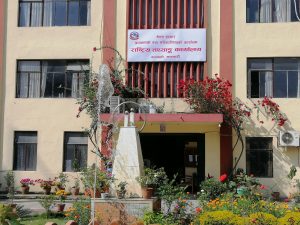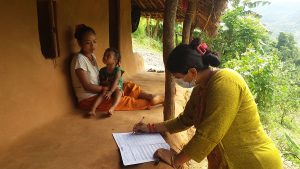 If it was another time, expectant mothers would feel happy while waiting for their babies. However, the expectant mothers these days face the outbreak of the coronavirus disease (Covid-19), and subsequent fear, anxiety, and uncertainty. The situation is clouding their excitement. Restricted movement, lack of necessary supplements, bodily changes, mood fluctuations, limited access to healthcare monitoring, socioeconomic and geographical barriers are taking a mental, emotional and financial toll on women and babies.
If it was another time, expectant mothers would feel happy while waiting for their babies. However, the expectant mothers these days face the outbreak of the coronavirus disease (Covid-19), and subsequent fear, anxiety, and uncertainty. The situation is clouding their excitement. Restricted movement, lack of necessary supplements, bodily changes, mood fluctuations, limited access to healthcare monitoring, socioeconomic and geographical barriers are taking a mental, emotional and financial toll on women and babies.
In Nepal, even before the pandemic, only 58 per cent of births were attended by skilled personnel where others were left to face serious risks if any complications arose during childbirth (UNFPA, 2016). Now, women are facing additional barriers to accessing maternal health care, including movement restrictions, transport challenges, and anxiety over possibly being exposed to the virus.
Today, we are witnessing an enormous demand on hospitals under an unprecedented surge of patients. With most of the resources mobilised to attend to Covid-19 patients, other health needs are given less priority. However, the existing national burden of the disease will not wait for this pandemic to ease, nor can it afford to ignore the many questions and health repercussions facing pregnant women.
People with underdeveloped or compromised immune systems – in particular the sick, aged, and infants – who need regular care and hospital monitoring now face a greater risk of Covid-19 infection. Yet, the burden of the pandemic on our health system leaves them any a few options including self-care, frequently deteriorating their condition and putting their lives at even greater risk.
 Already existing economic, social, and geographic barriers marginalise access to high-quality prenatal, delivery, and postpartum care of babies and pregnant women in Nepal. The coronavirus pandemic has further impacted this as health resources bypass the needs of the most vulnerable.
Already existing economic, social, and geographic barriers marginalise access to high-quality prenatal, delivery, and postpartum care of babies and pregnant women in Nepal. The coronavirus pandemic has further impacted this as health resources bypass the needs of the most vulnerable.
One can speculate that with the appearance of the first cases of Covid-19 death during hospitalisation, the fear of giving births in hospitals may rise. Annually, 8,100 Nepali babies are born too early and 4,300 babies under five die due to direct preterm conditions (Every Preemie Scale). With so many babies left unattended, risking the life of both mother and child, the question here is: what can be done to improve the situation.
In Nepal, many hospitals in the capital are now sealed off. Imagine, then, the situation of a pregnant woman in Baitadi, a remote district in Sudurpaschim, who is living inside, devoid of any information and checkups, thinking about the health of the child she is carrying. This abnormal situation affects her mental, emotional, economical, psychological conditions. Even in normal times, early motherhood and pregnancy are a time of great expectation and anxiety. During the pandemic, it is natural for a woman to be worried about the repercussions of Covid-19. So, despite the need for social isolation, we must strive to ensure that women are connected to each other and to trusted healthcare providers.
Public education on issues and concerns around pregnancy and needful care are needed to create connections among providers, pregnant women, and new mothers, through credible online platforms and seminars, ensuring that the needs of pregnant women are adequately met.
 For those adhering to the social model, childbirth is, in principle but less often in practice, a normal physiological process. Yet the nation’s biggest utility is the mobilisation of our skilled midwives, who can give information, emotional and professional support. In these times when hospitals cannot be reached, the vital role of our midwives becomes even more significant.
For those adhering to the social model, childbirth is, in principle but less often in practice, a normal physiological process. Yet the nation’s biggest utility is the mobilisation of our skilled midwives, who can give information, emotional and professional support. In these times when hospitals cannot be reached, the vital role of our midwives becomes even more significant.
Necessity is the mother of invention; this pandemic underscores the need for efforts to improve maternal health to move beyond conventional medical settings. In Nepal, tallying the number of pregnant women, their condition, and the provision of immediate care must be done at the community level by local bodies, perhaps even with separate hospitals and health practitioners appointed to protect the lives of this vulnerable group.
We need to learn from our existing response and prioritise action in terms of the needs of women and newborn children. Our healthcare systems and local bodies must become agile enough to ensure that women have a safe pregnancy and childbirth, even under the pressures of a pandemic.
When a health system is stressed, the most vulnerable tend to fall through the cracks. But, a stronger community outreach system, involving midwives and local bodies, can save them.
Devkota is a psychology and social work graduate. She currently works as a gerontologist.
























